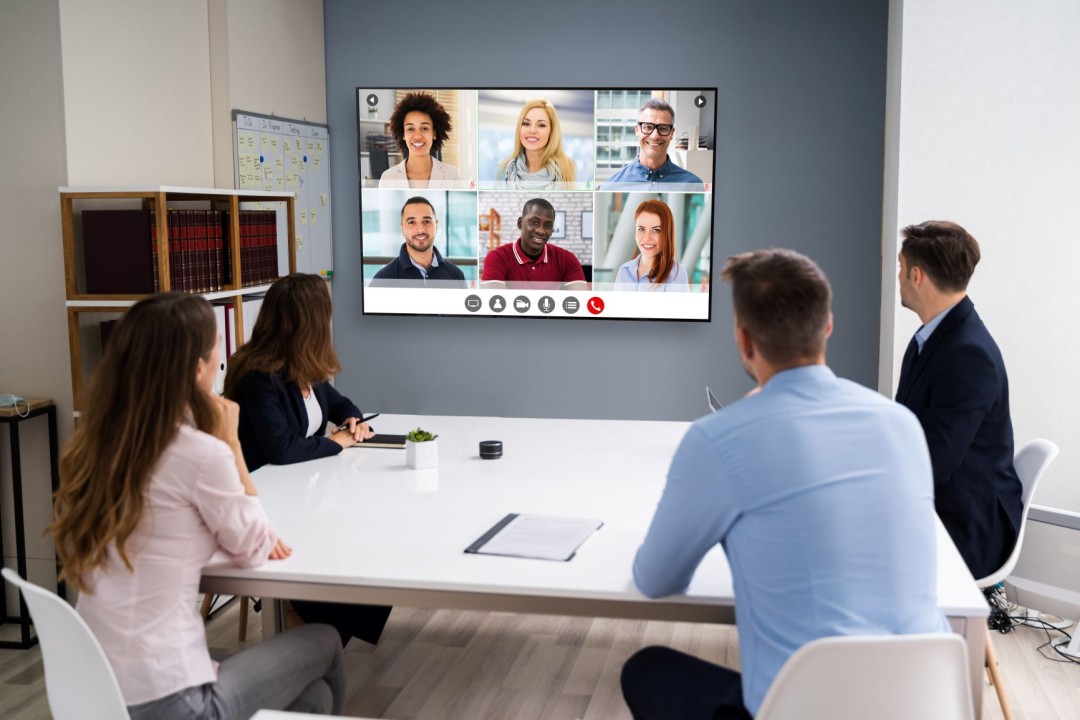
An offer of a cup of coffee, a chat around the water cooler, group brainstorms, or waking up properly on the morning commute. What is it that you’ve missed about the office? Or maybe it’s nothing at all?
Whilst many of us have enjoyed working remotely and the flexibility this has afforded us, most of us have missed some elements of our old working life and we’re nervously anticipating what a new hybrid working environment will bring. Others of us desperately want to return completely and others maybe not at all.
Regardless of your preference, the shift towards our own ‘new normal’ provides yet more change. This change takes energy and consideration, and the impact on our wellbeing as we adjust shouldn’t be underestimated.
Here’s my 5 top tips to support you with the transition:
Free up your diary
Clearly there will be some time spent catching up and reconnecting with colleagues during those initial days and weeks back in the office. This is no bad thing – there’s lots to be gained from reconnecting with our work peers; those ad-hoc conversations about what we did at the weekend, the ability to collaborate in the moment, and the feeling that we are part of something. It’s important for our wellbeing that we invest time into reconnecting - plus building rapport and stakeholder management are, and have always been, an essential part of office life. The trick is to embrace it! Free up as much time as your diary permits to plan these reconnections. Set yourself realistic expectations on what you will achieve and recognise that the time spent chatting to colleagues once more, is in fact, time well spent. Recognise that there will likely be a transition to working in an office environment again, the distractions we’d got used to working without we now have to get used to once again. Be kind to yourself if you’re not as productive as you were last week, and enjoy the bits you’ve missed!
Plan time to recover
Going back to a busy office and expending emotional energy reconnecting with people will likely be tiring, even for the most extroverted amongst us. Research shows that allowing ourselves time for active recovery is the key to good resilience and managing stress. Plan extra time to relax, recover and recharge after work for that first week or two. Consider how busy your social schedule is for that initial period, making enough time for your chosen hobbies and methods of relaxation, and make sure you’re getting enough sleep. Don’t jump straight in with a packed 5-day week at the office, consider a phased return to allow you to adjust little by little. Plan breaks and plan to take some downtime at lunch, maybe go for a walk with a few colleagues to reconnect and recharge simultaneously.
Speak up about concerns
We’re all in this together and naturally there will be a period of transition where safe working practices are established. As with any change, we all react in different ways and we have our own individual circumstances to consider. If you’re feeling anxious, don’t be afraid to speak up. You won’t be on your own and organisations will no doubt be finding their feet and relying on their people to be honest with how they are feeling. Working together and understanding each other will be crucial to the success of this transition.
Take time to reflect
There have been good things to come out of our remote working setup, plus things we’ve missed from the office. Take the opportunity to keep the bits that matter to you! Hybrid working can mean different things to different people so reflect on what you’ve appreciated personally and what you’ve learned from working at home; maybe it’s time for your hobbies, your exercise routine, popping a load of washing on, being able to do the school run and help with homework, seeing more of your family and friends or maybe a nice lunchtime walk and a bit of mindfulness is the habit you’d like to continue. Also take time to reflect on what remote working practices have served you well over the past 12-15 months and replicate some of your personal wins at the office. Maybe you’ve purchased some noise-cancelling headphones that have allowed you to focus and you want to bring these to the office. And don’t be too quick to ditch those regular Teams, Skype or Zoom calls just yet. Connectivity, communication and clear daily objectives will still be crucial for those remote working days. For many of us, this is our chance to define our ‘new normal’ of hybrid working and find something that truly works for us!
Support each other
Just like we all experienced lockdown and working from home in different ways, this too will be completely individual to each of us. Take the time to understand others’ viewpoints and don’t assume they’re on the same journey as you; what are they finding challenging, what are they enjoying, how can you help them? By supporting each other, showing our human side of kindness, compassion and empathy, we allow ourselves and our peers to be psychologically safe through this transition. Safe to express our feelings, safe to define our own ways of working and safe to lean on each other as we tread on own unique paths together.
Whilst these tips may seem simple, we know change is anything but. It takes mental planning, awareness and consideration. Take some time to think about what you’ve missed about the office life and what the best bits of remote working have been, and create your ideal blended working environment. Don’t be afraid to ask for support from your employer to achieve this - whilst it’s good for you, it’s great for them if you’re happy and able to be productive.
And don’t forget, as we transition back to the office, and into our future way of working, none of us really know what this looks like. Just imagine if you travelled forwards to the year 2025 - Great Scott! What does the future world of work look like for you?!




